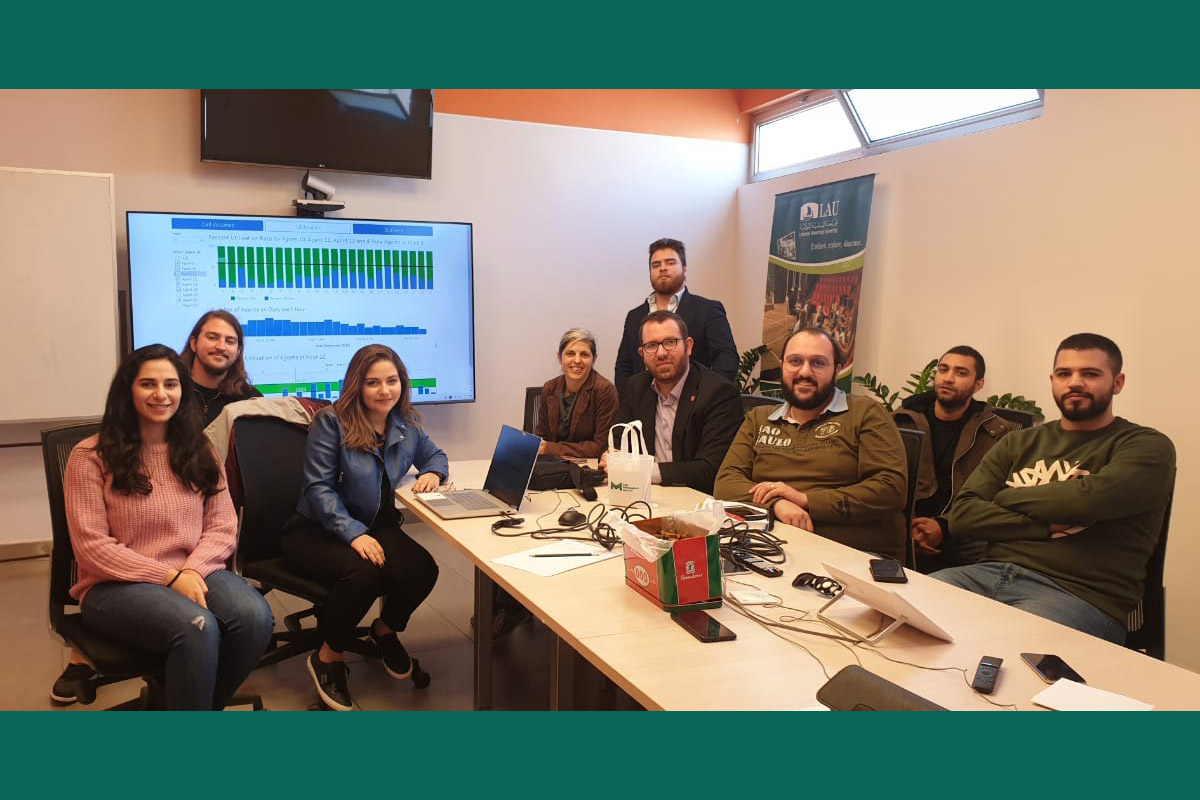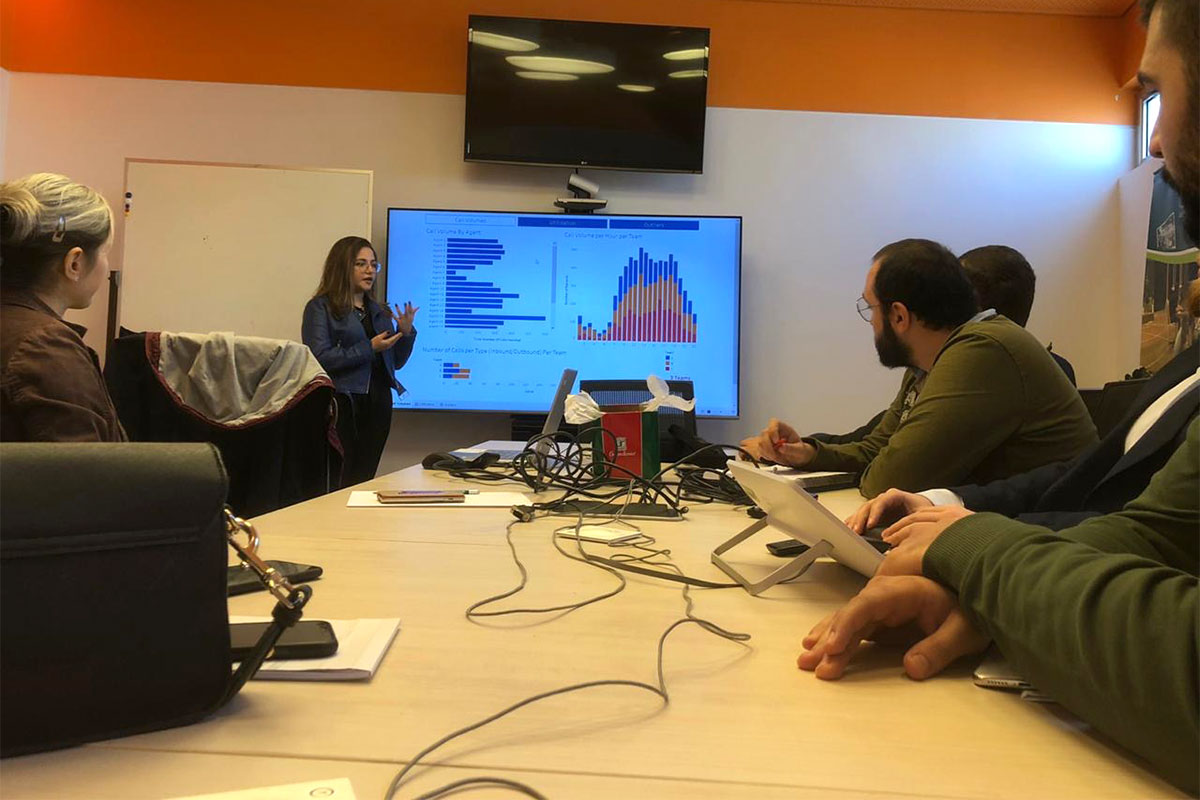AKSOB Students Help Optimize the Lebanese Red Cross Operations
As part of a live case study, AKSOB students create a dashboard to enhance the efficiency of the Lebanese Red Cross emergency call response.
Bringing their classwork experience to life, seven students from the Adnan Kassar School of Business (AKSOB) developed and delivered a dashboard that allows the Lebanese Red Cross (LRC) to view and monitor the peak-time rates of their call takers – an initiative that demonstrates the social impact that the AACSB-accredited school is making.
This falls within the framework of a partnership between LAU and the LRC that recently included a study in volunteer management and mental health support, and a consulting role on the NGO’s community-needs assessment efforts.
With the main purpose of ensuring ample rest for the LRC staff and optimizing operations in their dispatch room, LAU students in the Introduction to Applied Data Analytics course created a fully dynamic dashboard that provides the LRC with key metrics that would help them reduce the utilization rate of their agents.
“In an environment like Lebanon with so much need and often little capacity, call takers work beyond healthy thresholds sometimes,” said Dr. Jordan Srour, associate professor of operations management at AKSOB, who formerly worked on a project to improve the LRC emergency response.
Hence “the importance of the dashboard in recommending breaks when they get close to a 60 percent threshold in any hour,” she explained.
According to Hassan Saad, Deputy Director of the Emergency Medical Services at the LRC, the dashboard allowed them to monitor and analyze the KPIs (Key Performance Indicators) for their dispatch center.
“One of these KPIs is the utilization rates of call takers and checking if these rates meet international standards,” he said, adding that analyzing the call trends and identifying peak times was another added value in which they managed resources accordingly.
The case study was divided into three primary parts: the initial client meeting, on-site client meeting and final deliverable to the client, “an experience thoroughly valued by the students,” said Dr. Srour.
By exploring the working environment at the LRC call center, the students learned about the data pipeline that was fueling their work while gaining a real sense of the way things are run in the business world.
“This was a very important lesson for our data professionals of the future,” said Dr. Srour, stressing that students learn quickly when dealing with a real client as “they no longer worry about the to-dos of the project, but focus on the client’s needs instead.”
The project was an eye-opening and career-changing experience for the students on both the personal and professional levels.
“On the one hand, it was fulfilling to work with a humanitarian organization on a project that could possibly help save lives,” said alumna Wendy El Hage (BS ‘20), noting that the data analytics knowledge she had acquired allowed her to leverage her communication and teamwork skills.
“On the other hand, the project opened a wide range of new career opportunities in business analytics and management consulting,” she added.
Senior ITM student Ari Chalita Bouari, who is currently pursuing a minor in Data Analytics, learned how to handle and visualize large amounts of data and turn them into beneficial information.
“The hands-on experience of the project was an added value to my field of studies and knowledge,” he said. “Not only did it enhance my project management and problem-solving skills, but also my sense of belonging and the spirit of giving back to my community.”
The classwork also incentivized alumnus Anwar Tarabay (BS ‘20) to look into a master’s degree in data related fields.
“Having worked in operations, and with a keen interest in the analytics world, I have applied to pursue a master’s degree in operations research,” he said. “At a later stage, I would like to delve into the operational field of airports, which was in fact the topic of my final exam dashboard.”
Looking back, Dr. Srour described the partnership as one of the greatest so far. “The beauty of it lies in the fact that we can jointly envision a future for the data projects we undertake,” she said, underlining the shared LAU-LRC ethics that contributed to the success of the collaboration.
The next and most important steps, said Dr. Srour, are to better integrate with GPS data streams “as the insights coming from this analysis will allow for greater recommendation of operational changes and a better understanding of what the impact of a $1 donation means for the LRC’s ability to save lives.”

